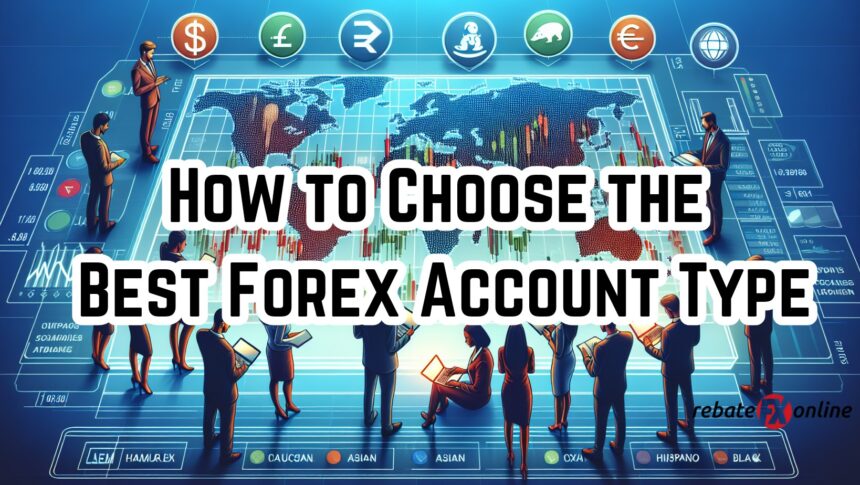When diving into the world of forex trading, selecting the right forex account type is a crucial step that can significantly influence your trading experience and success. Different account types cater to various trading needs, skill levels, and financial capabilities. Here’s a comprehensive guide to help you choose the best forex account type for your specific situation.
Understanding Forex Account Types
Forex brokers typically offer several types of accounts, each with distinct features. Here are the most common ones:
1. Demo Account
- Purpose: Practice without risk.
- Features: Uses virtual money, mimics live trading conditions.
- Ideal For: Beginners to learn trading basics, experienced traders to test strategies.
2. Micro Account
- Purpose: Trade with minimal risk.
- Features: Low minimum deposit (as low as $10), small trade sizes (micro lots).
- Ideal For: New traders, those with limited capital, traders testing new strategies with real money.
3. Standard Account
- Purpose: Regular trading with standard lot sizes.
- Features: Higher minimum deposit (usually $100 or more), standard lot sizes.
- Ideal For: Traders with some experience, moderate capital, and a clear trading strategy.
4. Mini Account
- Purpose: Lower risk than standard accounts.
- Features: Smaller lot sizes (mini lots), lower minimum deposit than standard accounts.
- Ideal For: Intermediate traders, those with limited capital but more experience than beginners.
5. VIP or Premium Account
- Purpose: High-volume trading with additional benefits.
- Features: High minimum deposit (often $10,000 or more), dedicated account manager, tighter spreads, additional services.
- Ideal For: Experienced traders, high-net-worth individuals, institutional traders.
6. Swap-Free or Islamic Account
- Purpose: Compliant with Islamic finance laws.
- Features: No swap or rollover interest on overnight positions, usually higher spreads or commissions.
- Ideal For: Muslim traders who wish to adhere to Sharia law.
Key Factors to Consider
When choosing a forex account, consider the following factors:
1. Experience Level
- Beginner: Start with a demo account or a micro account to minimize risk and build confidence.
- Intermediate: A mini or standard account might be suitable as you gain more experience.
- Advanced: Consider a standard or VIP account to leverage your skills and capital.
2. Capital Available
- Limited Capital: Micro or mini accounts are ideal due to their low minimum deposit requirements.
- Moderate Capital: Standard accounts provide more flexibility and better trading conditions.
- High Capital: VIP accounts offer enhanced features and personalized services.
3. Trading Goals and Style
- Short-Term Trading: Look for accounts with low spreads and fast execution.
- Long-Term Trading: Swap-free accounts might be beneficial if holding positions overnight.
- High-Volume Trading: VIP accounts offer better spreads and additional benefits.
4. Regulatory Compliance
- Ensure the broker is regulated by reputable authorities (e.g., FCA, CySEC, ASIC).
- Check the broker’s history, customer reviews, and reputation in the industry.
5. Fees and Costs
- Spreads: The difference between the bid and ask price; lower spreads are better.
- Commissions: Some accounts charge per trade; consider if this fits your trading frequency.
- Overnight Fees: Swap rates for holding positions overnight; swap-free accounts avoid these fees.
6. Additional Features
- Leverage: Higher leverage allows more significant positions but increases risk.
- Trading Platforms: Ensure the platform is user-friendly and has the necessary tools.
- Customer Support: Reliable customer support is essential for resolving issues promptly.
Conclusion
Choosing the best forex account type involves assessing your trading experience, capital, goals, and the features offered by different account types. Beginners should start with demo or micro accounts to gain experience without risking much capital. As you grow more confident and skilled, transitioning to standard, mini, or even VIP accounts can provide better trading conditions and more opportunities. Always ensure your chosen broker is regulated and reputable, offering transparent fees and robust support. By carefully evaluating these factors, you can select the forex account type that best aligns with your trading needs and objectives.

